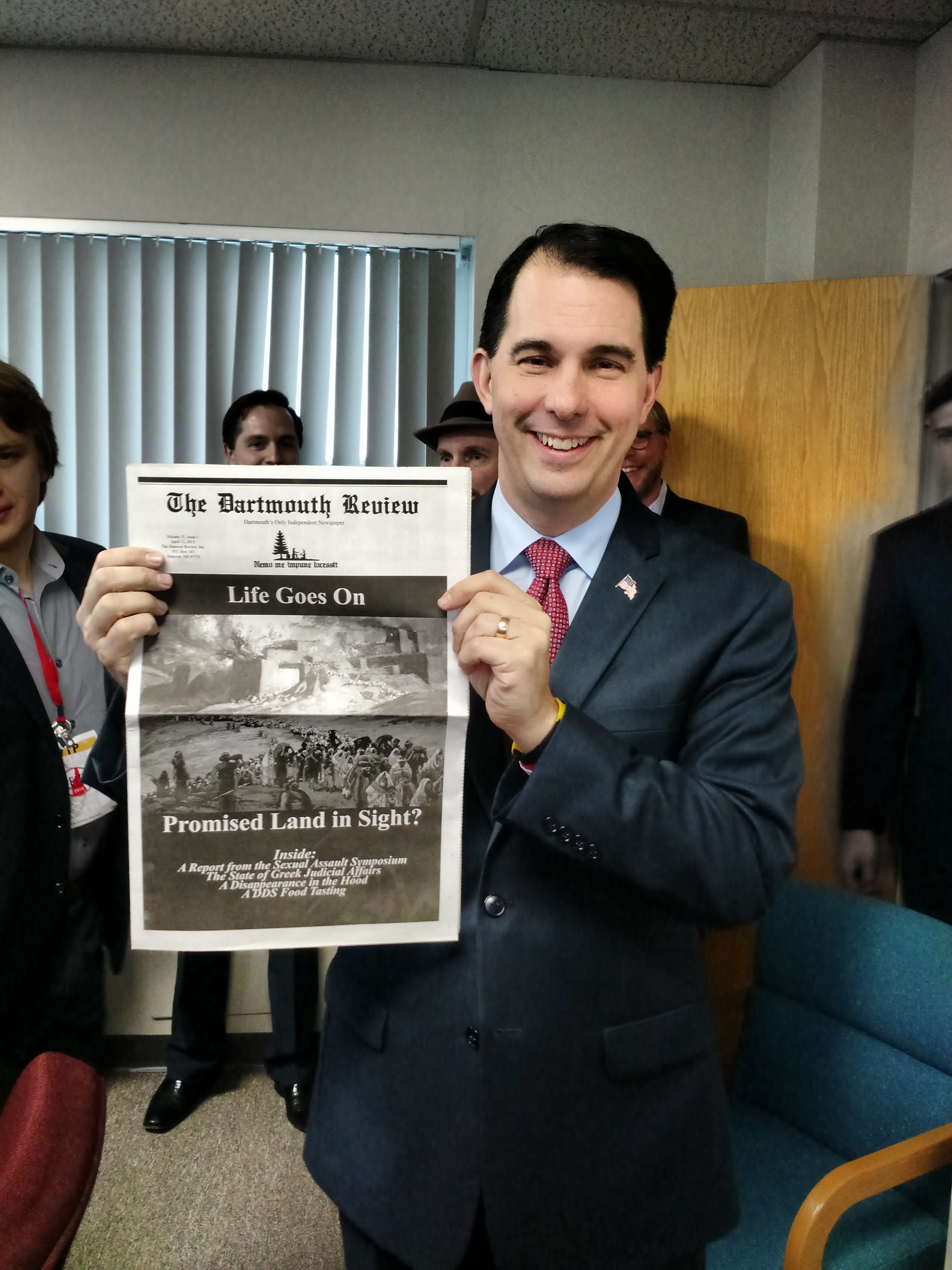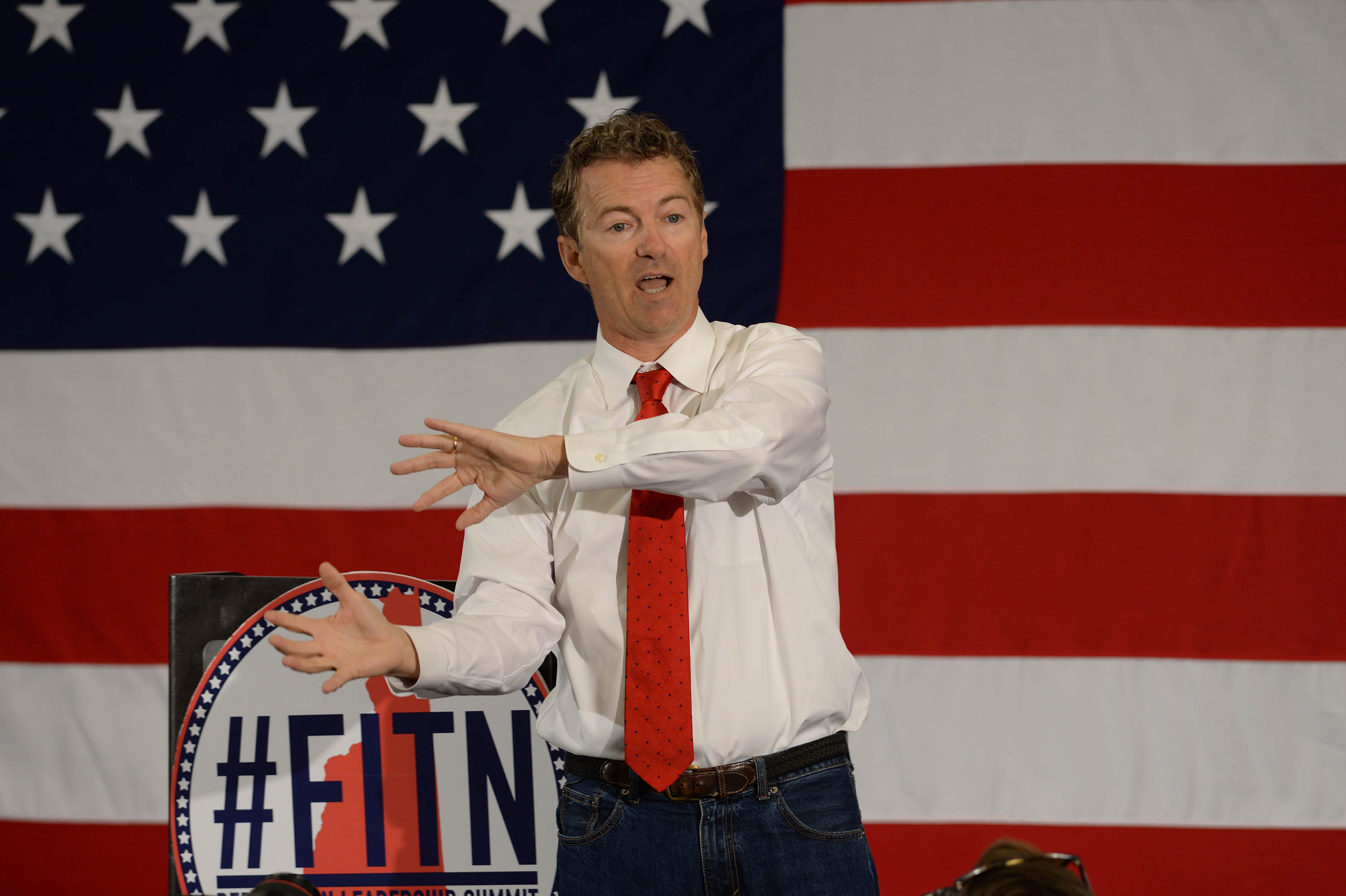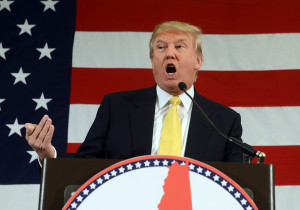It has been said that Iowa picks corn, but New Hampshire picks presidents. And it is probably a good thing that it the Live Free or Die state, where a deathly aversion to taxes and a reflexive desire for liberty are practically etched into the granite, is the most important state in the entire primary season. With a desire to participate in this exciting process, on April 17 and 18, a rather large contingent of Dartmouth College Republicans made the long and treacherous journey to Nashua, New Hampshire for the First in the Nation Republican Leadership Summit. With perhaps the most open primary field in a generation, nearly 20 declared and potential presidential contenders made the requisite pilgrimage to the Granite State to give speeches and shake hands.
Following the success of similar events in both New Hampshire and Iowa (the New Hampshire Freedom Summit, hosted by Citizens United and Americans for Prosperity and the Iowa Freedom Summit, hosted by Citizens United and Congressman Steve King), as well as the Free State Project’s Liberty Forum, the New Hampshire Republican Party planned the First in the Nation Summit. The Summit, which was attended by over 400 people, featured the whole gamut of Republicans running, thinking about running, or even thinking about thinking about running for president. Speakers included top-tier candidates such as Ted Cruz, Rand Paul, Marco Rubio, Jeb Bush, and Scott Walker, but potential dark horses such as Bobby Jindal and John Kasich also made appearances. Even lower-tier and non-serious potential candidates such as John Bolton, Lindsey Graham, Peter King, and Donald Trump showed up en masse to speak.
The speeches were, all in all, a mixed bag. By far, the biggest disappointment of the entire two-day summit was former Florida Governor Jeb Bush, whose speech was universally panned by both supporters and detractors. His “aw shucks” attitude and lackadaisical attempts to convince the audience that he is a true conservative fell flat. The audience was skeptical, if not outright hostile, to the idea of his candidacy. He appeared old and frail, as well as more wonkish than presidential. Spending an inordinate amount of time speaking about his family, including his father and brother, he appeared more as the candidate of the old Republican establishment rather than the candidate of today’s party. In short, he all but confirmed voters’ perception that he represents the past and not the future. Beyond his fundraising ability, Bush seems to have very little going for him at the moment.
Compounding Bush’s problem with the conservative base is the 603 Alliance, a grassroots advocacy group actively working to deny him (and any other perceived moderates) victory in the New Hampshire primary. A loss for Bush in the Granite State would be devastating to his campaign, especially considering his slim chances in Iowa. Conservatives and libertarians in New Hampshire have become increasingly incensed as moderates such as John McCain and Mitt Romney prevailed against a fractured contingent of conservatives, leading to the state’s reputation as being friendly territory for moderates. Anti-gun and anti-life Massachusetts carpetbagger Scott Brown’s victory in the 2014 Republican Senate primary and Tea Party-hating Maryland carpetbagger Walt Havenstein’s victory in the 2014 Republican gubernatorial primary were the last straws. The day after the First in the Nation Summit, at the exact same venue, conservatives and libertarians such as Congressman Steve King, Andrew Hemingway, Aaron Day, Jason Sorens, Bill O’Brien, and Mike Rogers gathered to begin the process of selecting one conservative candidate that all conservatives in the state can rally behind to prevent a moderate from winning the primary.
Our very own junior senator, Kelly Ayotte, gave her typically mediocre speech coupled with a shaky delivery. Unfortunately, forming coherent and grammatically correct sentences in front of an audience is still occasionally a challenge for her. Nevertheless, Ayotte has proven herself to be an effective senator who is a skilled retail campaigner. She is also extremely popular. At the summit, her 2016 reelection campaign was in force, and anyone entering the Crowne Plaza was immediately greeted with a sea of attendees wearing Ayotte buttons. While there are rumblings about a primary challenge to Ayotte, she is conservative enough to ward off a serious challenge. Sensing the potential of a strong challenger to Ayotte in Democratic Governor Maggie Hassan, Republicans are rallying behind Ayotte. And if Republicans continue to demonstrate this level of unity, Hassan will have a tough time winning this seat.
On the other hand, the quality of some speeches was pleasantly surprising. Amid his floundering candidacy, New Jersey Governor Chris Christie revamped himself into a straight-talking, commonsense conservative willing to take on tough issues like entitlement reform. Although his candor and embrace of American politics’ third rail may be a sign of desperation, it was nevertheless refreshing to see a candidate who has concrete ideas about how to make Social Security solvent. He also spent more time than anyone else addressing questions, and he actually delivered straight answers to the questions. Although Christie’s chances still look slim, he demonstrated that he can really shake up the field.
Kentucky Senator Rand Paul demonstrated once again why he is the most interesting candidate in the Republican field. With the rise of ISIS and increasing concern about Iran’s nuclear program, the formerly war-weary Republican Party has moved in a decidedly hawkish direction. Seeing videos of people get immolated and beheaded tends to do that. As such, Paul, the lone noninterventionist in the Republican field, lost his vaunted frontrunner status. While every other candidate was trying to out-hawk the others with doomsaying messages about ISIS, Russia, and Iran, Paul went in the other direction. While it seemed as if Paul was moderating his foreign for a while, at First in the Nation, he doubled down on nonintervention. He pointedly jabbed his rivals as supporting the failed Obama-Clinton foreign policy of failed intervention in Libya and Syria. At a private session with College Republicans, Paul reiterated this point and specifically named Lindsey Graham, John McCain, and Joe Lieberman as those he disagrees with on foreign policy. Furthermore, Paul was one of the most aggressive candidates in attacking Hillary Clinton for her political baggage, which now includes the unfolding scandal around donations by foreign countries to her foundation.
Mild-mannered Ohio Governor John Kasich demonstrated that he has the potential to emerge as a dark horse. He emphasized that he has repeatedly defied prevailing political wisdom and defeated incumbent Democrats considered invulnerable, starting from the time he was a young whippersnapper running for state senate. Also, he touted his decades of experience, harkening back to a time when things actually got done in Washington. When no one thought that a balanced federal budget was possible, Kasich pushed for one year after year. As Chairman of the House Budget Committee, he actually did balance the federal budget. He subsequently slammed both big-spending Democrats and Republicans for blowing the surplus he created.
Louisiana Governor Bobby Jindal’s speech was also surprisingly effective. After his disastrous State of the Union response years ago, many had written him off. Though it is unlikely he would get anywhere in such a competitive primary field, he talked about his family and background in an engaging manner, all while promoting his record as a conservative reformer in Louisiana on issues such as spending and education. Mike Huckabee also made an appearance at the podium, delivering a speech that can perhaps best be described as curmudgeonly. Despite his grumpy demeanor, he had a series of entertaining anecdotes that supported his views. Huckabee probably still has a lot of credibility among social conservatives, although New Hampshire is much less religious than either Iowa or South Carolina, so he will most likely face an uphill battle here.
Carly Fiorina, former CEO of Hewlett-Packard and 2010 Republican nominee for the senate in California, gave an interesting but unexceptional address to the First in the Nation Summit. She is the only woman in the entire Republican field (announcement pending and due May 4), and she is also one of the few without public sector experience. Entering the stage to Alicia Keys’ “This Girl is on Fire,” Fiorina proceeded to vigorously attack Hillary Clinton, as she has done previously. As a woman, she no doubt feels more comfortable criticizing Clinton without fear of being too aggressive. She repeated the zinger she had used previously: “Unlike Clinton, I know flying is an activity, not an accomplishment.” Then, Fiorina proceeded to condemn Clinton’s foreign policy record, particularly with regards to human rights. On the latter she made jabs at the former Secretary of State’s husband, claiming “I was asked this morning on Fox News whether a woman’s hormones prevented her from serving in the Oval Office — not that we have ever seen examples of a man’s judgement being clouded by hormones, including in the Oval Office.” A private session attended by a number of College Republicans was significantly drier, focusing on Fiorina’s fiscal policies along with a heaping of criticism on Clinton’s fiscal policy.
Wisconsin Governor Scott Walker delivered an effective speech that touted his conservative accomplishments in cobalt Wisconsin. His very long list of achievements includes dramatically lowering unemployment, defeating public sector unions, improving public education outcomes, balancing the budget, defunding Planned Parenthood, implementing voter ID, and passing right-to-carry and right-to-work—a conservative record to be proud of and stand behind. He argued that he does not only pontificate and makes noise about conservative values; he fights and he wins against the odds. He drew a distinction between Republicans and Democrats—Republicans celebrate independence from government while Democrats celebrate dependence on it.
Texas Senator Ted Cruz, the last speaker, was as on-message and eloquent as usual. However, his slickly packaged one-liners and unnatural delivery quickly grew tiring. He delivered his standard speech with the same predictable lines about Obamacare and the IRS. And we still all want to know what “a time for truth” means. He knows how to move an audience, but his speeches are filled with vapid platitudes rather than substance.
Against the plethora of engaging and talented speakers, one stood above the rest. Florida Senator Marco Rubio, the most recent candidate to make his campaign official, performed perhaps the best. Recent polling data seems to agree, with Rubio surging above current frontrunner Walker. Rubio often delivers the same stump speech, but he managed to convey his ideas in such a natural way that they seemed fresh, in contrast to Cruz. His youthful energy was invigorating, and there is no doubt that Rubio represents not only the highest ideals of the Republican Party, but also the American dream. Rubio has been called the most naturally gifted politician in the Republican field, and his performance at First in the Nation all but confirms his reputation. His articulation of his personal background was second to none, despite other speakers such as Cruz and Jindal having similar stories.
Some speakers were more eccentric. Donald Trump did not meet, exceed, or fail to meet expectations since there were absolutely no expectations for this exceedingly trollish character. He delivered an utterly absurd speech which consisted mostly of shameless self-promotion. The real estate mogul repeatedly mentioned how he builds and owns, well, real estate such as golf courses and buildings. He also vigorously insisted that he is considering running for president. Nevertheless, it was exceedingly clear that Trump is not serious candidate and simply wants to generate headlines. In retail politics-focused New Hampshire, the fact that he was surrounded by a huge entourage with private security and was inaccessible overall was a dead giveaway. Still, he was amusing to listen to. He is also interested in coming to Dartmouth in the near future.
The one notable absence from the summit was Ben Carson, though a number of passionate supporters manned a prominent booth bearing his image.
We also met Vermin Supreme, who handed out candy and bumper stickers outside the event before making a grand entrance through the side door; his enthusiasm was unrivaled by any other attendees as he proclaimed his desires for toothbrushing laws and universal pony access. As America’s greatest political satirist, his presence was universally appreciated.
Though the venue size was too small, the First in the Nation Summit was a successful event, bringing the entire range of potential presidential candidates and New Hampshire political actors, representing the best of the Republican Party as well as the clown car. With perhaps the largest primary field in modern history, First in the Nation demonstrated the vitality of the party and also the long road ahead to the White House. We at The Dartmouth Review eagerly await the upcoming primary season as we choose a new direction for our country.
Jack F. Mourouzis also contributed to this report.





Be the first to comment on "To Pick a President: The First in the Nation Summit"